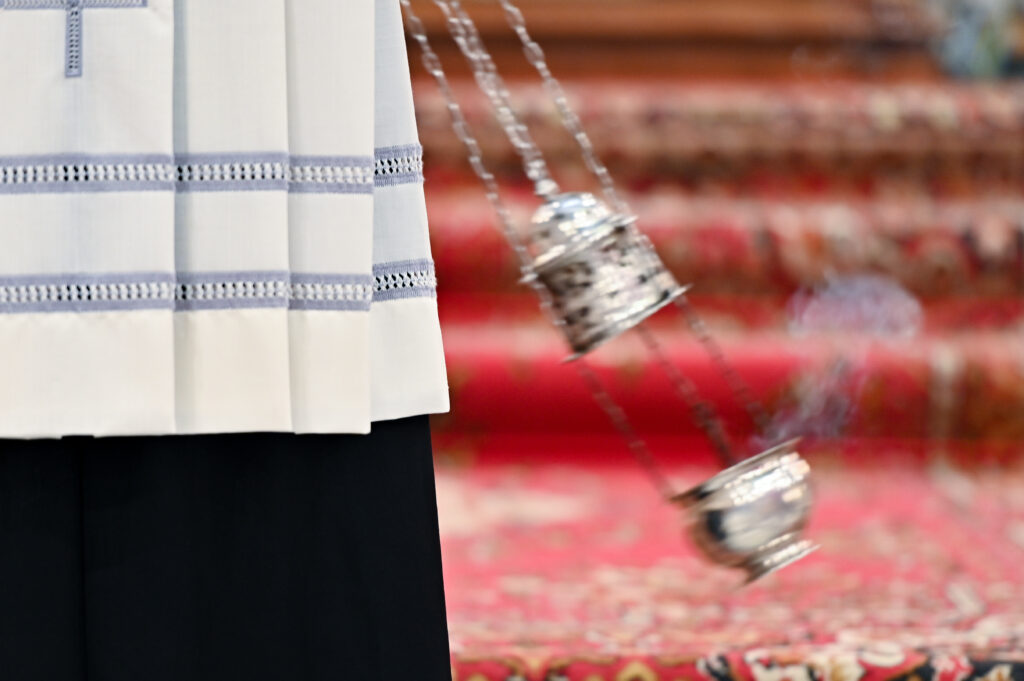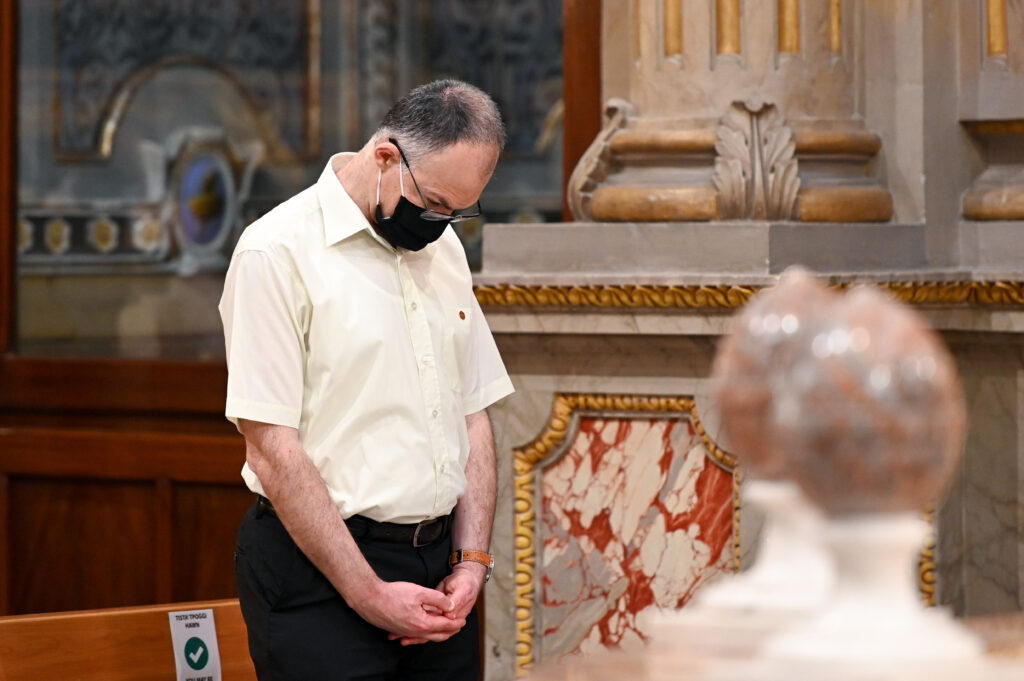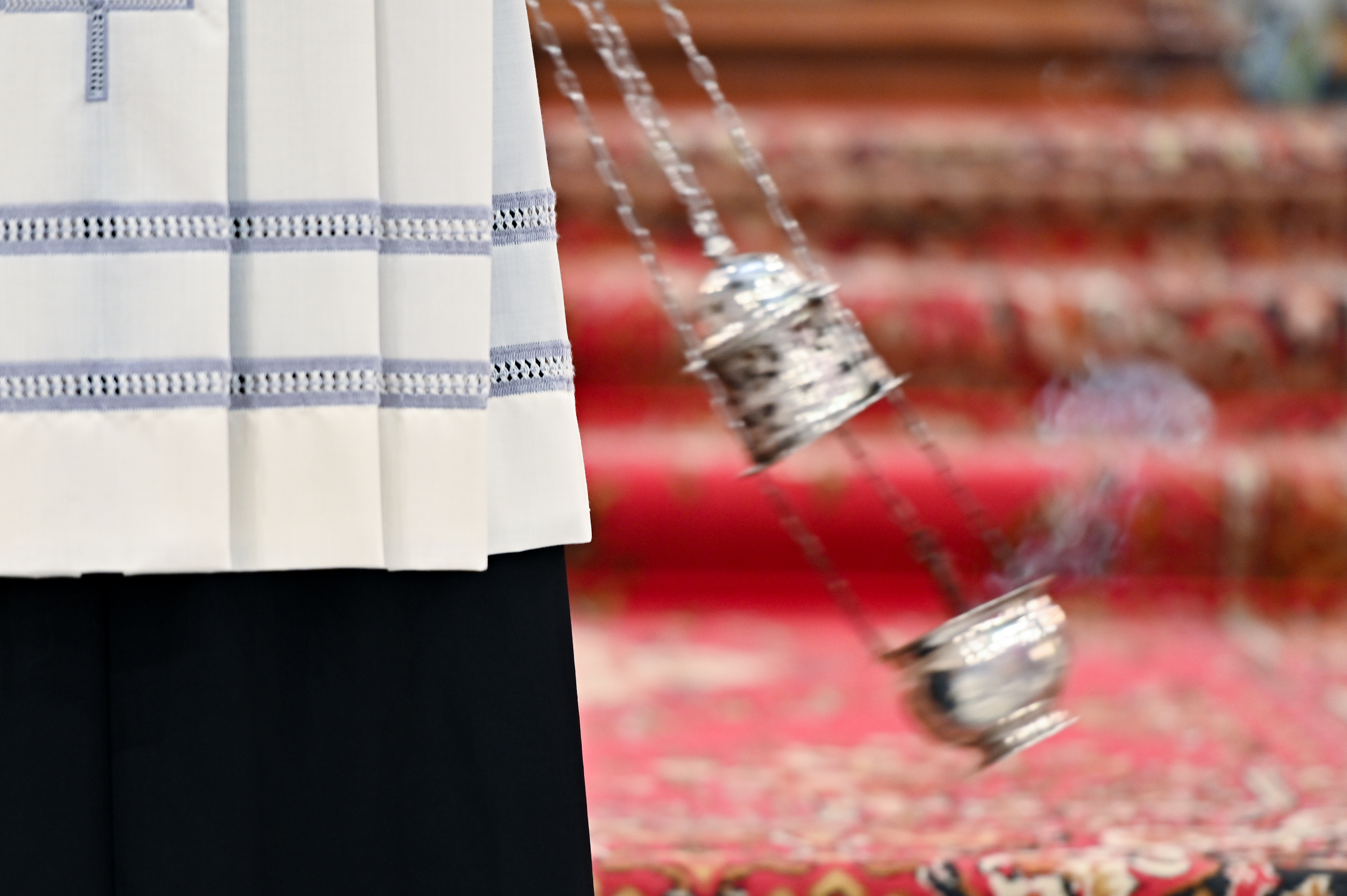Homily by Archbishop Charles Jude Scicluna
The words of Jesus today from chapter 10 of the Gospel of Matthew are a bit foreign to our ears. Jesus is putting the most sacred relationships of love into question. So it seems, anyone who prefers “father or mother to me is not worthy of me, and whoever loves son or daughter more than me is not worthy of me”. These are strange words. They have very powerful words. What is the context? Why would Jesus pronounce the words and why would the community remember them so much that we find them in more than one of the gospels.
The gospels were written at a moment when the Christian community was still a very small community, was endandgered by persecution. People had to make very tough decisions to follow Jesus. For most of them it meant being ostracised, put away, disinherited by family and they choose to follow Jesus becuase they had met Jesus in his wonderful compassion, his words of wisdom. They had met Jesus with his healing power and Jesus had brought them profound and inner peace and they knew that if they had to pay a very tough and high price to keep Jesus and to be with Jesus, they knew whom they had put their trust in.
In this parish church, the titular feast is a celebration of Paul, our father in faith. He also went through very difficult decisions to follow Jesus Christ. On the way to Damascus he met Jesus Christ and he chose to follow him, to be baptised, but that meant leaving friends, family, traditions that were so dear to him. At one point he says: “Compared to Christ, everything seems to be vanity for me, everything seems to be a shadow of its former self”.
So the main focus in today’s words from Jesus is what really about is not really about hating somebody or leaving behind somebody, but rather prefering him above all things, that will give us a different take on our relationships, on our loves, on our friendships, even on our family relationships. He himself says: “that whoever loses his life for his sake will find it”. We will find these relationships on a new level, probably more profound, more pure, more sacred.

Then he talks about taking up one’s cross. Now the cross at the time of Jesus was not something which was spiritual or very neat and tidy. It was a horrible means of execution. It meant death through asphyxiation. Carrying one cross was actually being condemned to the harshest execution and he talks about something that he himself goes through for our sake. So Jesus is not asking me or you that he didn’t go through. He is telling us: “You and me, that there may be situations where we will have to suffer rejection, opprobrium, humiliation because of him, because of doing what is right and that is the way we become worthy of him, who died on the cross for each and every one of us.
The apostle Paul and Peter, we’re going to start celebrating their feast tonight, left everything to follow Jesus. Peter left his wife and he left his mother-in-law. Imagine what his mother-in-law said, or did not say, when Simon left the boat, the fishing nets and went after Jesus and left a family behind him. But then Jesus goes to the house of Simon (Peter). The mother-in-law of Simon is sick with fever and Jesus takes her by the hand and heals her. The gospel says she woke up and started serving them. Imagine her look at Simon – you chose right. You did the right thing and of course, Simon (Peter) rediscovered his mother-in-law on a new level. She had become a disciple herself. So losing somebody and finding them again in Jesus. This is what the Lord is asking us to do today, to trust him, to dedicate our most sacred relationships to him and through him.
The second word of Jesus today is important in the circumstances we are living in the Mediterranean. It is about welcoming people as prophets, as holy men and women, as little ones. Jesus telling us: “When you receive the little ones, you are receiving me. Even if you offer as much as a cup of water, you will be rewarded. Well looking at the apostle Paul, our father in faith, we welcomed him and 275 other people that were shipwrecked on our shores and we were blessed. A prophet, Paul the apostle of Jesus, healed the father of Publius but also all the sick of the islands. Our generosity, our hospitality, our welcoming nature brought blessings in us – it is something we need to remember when we are tempted to say: ‘Sorry, full-up, there’s no more room in our inn. Go to the next stable.’ Jesus went through that as a baby and Joseph and Mary had to take the baby to Egypt, as refugees in order to save the baby and themselves. Somebody must have welcomed them. The gospel is also a narrative of people welcoming each other and being blessed because of their generosity. May the Lord, in his mercy grant us to understand the blessings that he wants to share with us.

✠ Charles Jude Scicluna
Archbishop of Malta
Mass Readings:
First Reading: 2 Kings 4, 8-11.14-16a
Psalm: 88 (89), 2-3.16-17.18-19
Second Reading: Rom 6, 3-4.8-11
Gospel: Mt 10, 37-42





